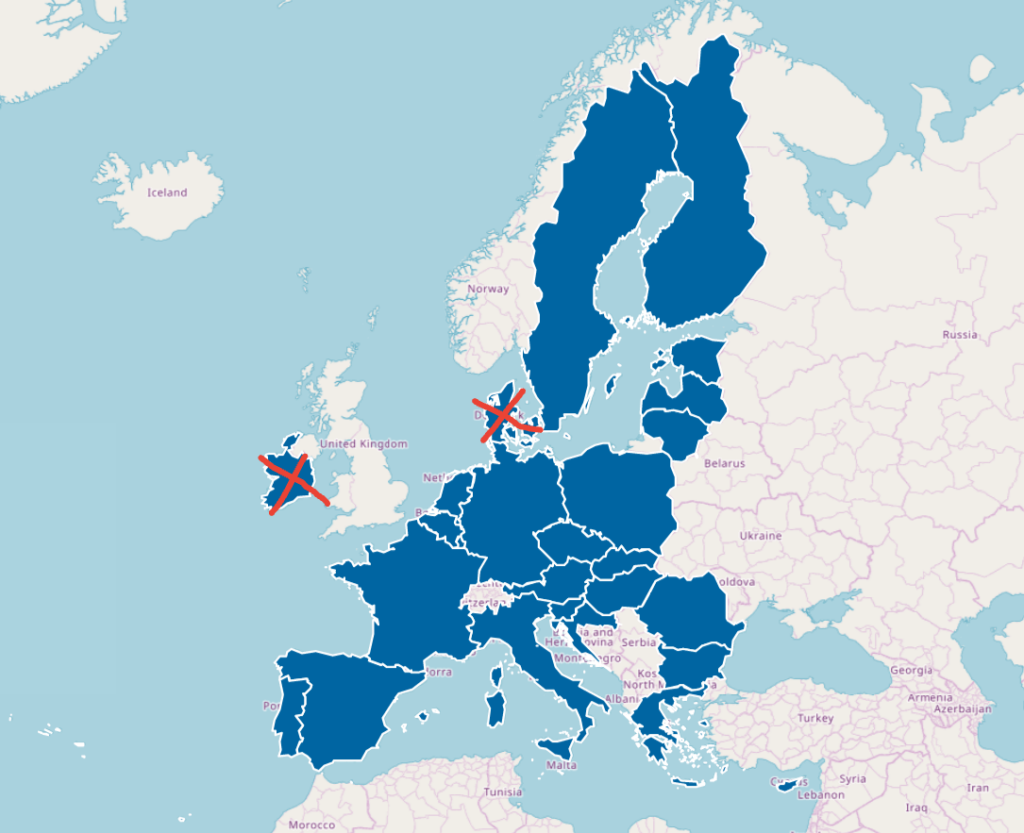The EU Blue Card: Everything You Need to Know

The EU Blue Card is a work permit that allows citizens of non-EU countries to work in the EU. It is a popular choice for many people who want to work in Europe, as it has many benefits compared to other visas. In this article, we will discuss who can apply for the EU Blue Card, and what the specific requirements are. We will also talk about how long the visa lasts, and what its benefits are.
The EU Blue Card was introduced in 2009, as part of the EU directive on the conditions for entry and residence of third country nationals for the purposes of highly qualified employment. It is issued under strict criteria, which are set out by individual EU countries.
It is all the more relevant today, as the European Commission recently emphasized the importance of importing skilled workers from outside the EU.
How do I apply for the EU Blue Card?
There is no specific EU Blue Card application form. The application process will vary depending on the country you are applying in. However, most countries require that you submit an application to the relevant national visa office. You will need to provide evidence of your qualifications, language skills, and work experience. You may also need to undergo a medical examination and/or security check. Both you and your employer can apply. Need help with applying? Contact us for more information.
How much does it cost to apply?
The EU Blue Card application fee varies from country to country and may be higher if there are additional fees for medical or security check. The application fee is usually not more than a few hundred euros. You can apply yourself you can choose to have a professional help you with the application or perform the application on your behalf. It will obviously be more expensive to have a professional perform the application on your behalf. However, you will have more certainty that your application is done correctly.
For how long is the EU Blue Card valid?
The EU Blue Card usually lasts for a maximum of four years, but it can be extended if necessary. It can also lead to permanent residency after five years’ continuous legal residence within any one or more member states.
Which countries offer the EU Blue Card?
The EU Blue Card is available in all EU member states, with the exception of Denmark and Ireland.

How do I find work in the Netherlands as a highly-skilled immigrant?
If you are looking for a job in the Netherlands, there are a few things you can do to increase your chances of finding one. Firstly, you can browse job websites such as Monsterboard, Nationalevacaturebank.nl, Indeed.nl, and Werkeninhetnieuwe.nl. These websites list jobs from all over the country, so you can find a job that suits your skills and interests. Also LinkedIn is widely used in the Netherlands and throughout Europe to find jobs. Both startups and large enterprises post their jobs on LinkedIn.
Another thing you can do is attend job fairs. Job fairs are events where companies from all over the country come to meet potential employees. This is a great way to meet employers face-to-face and learn more about their businesses.
Finally, you can network with people who work in your field. Networking is a great way to find out about job openings, and it can also help you build relationships with potential employers. By networking with people in your industry, you may be able to get insider information about upcoming job opportunities.
These are just a few of the many things you can do to find a job in the Netherlands. Keep in mind that it takes time and effort to find the right job for you, but if you are patient and persistent, you will eventually find something that suits your needs. Good luck!
Get your EU Blue Card today!
Get in touch with our relocation network for doing business all over Europe. Or use our contact below to get in touch.
